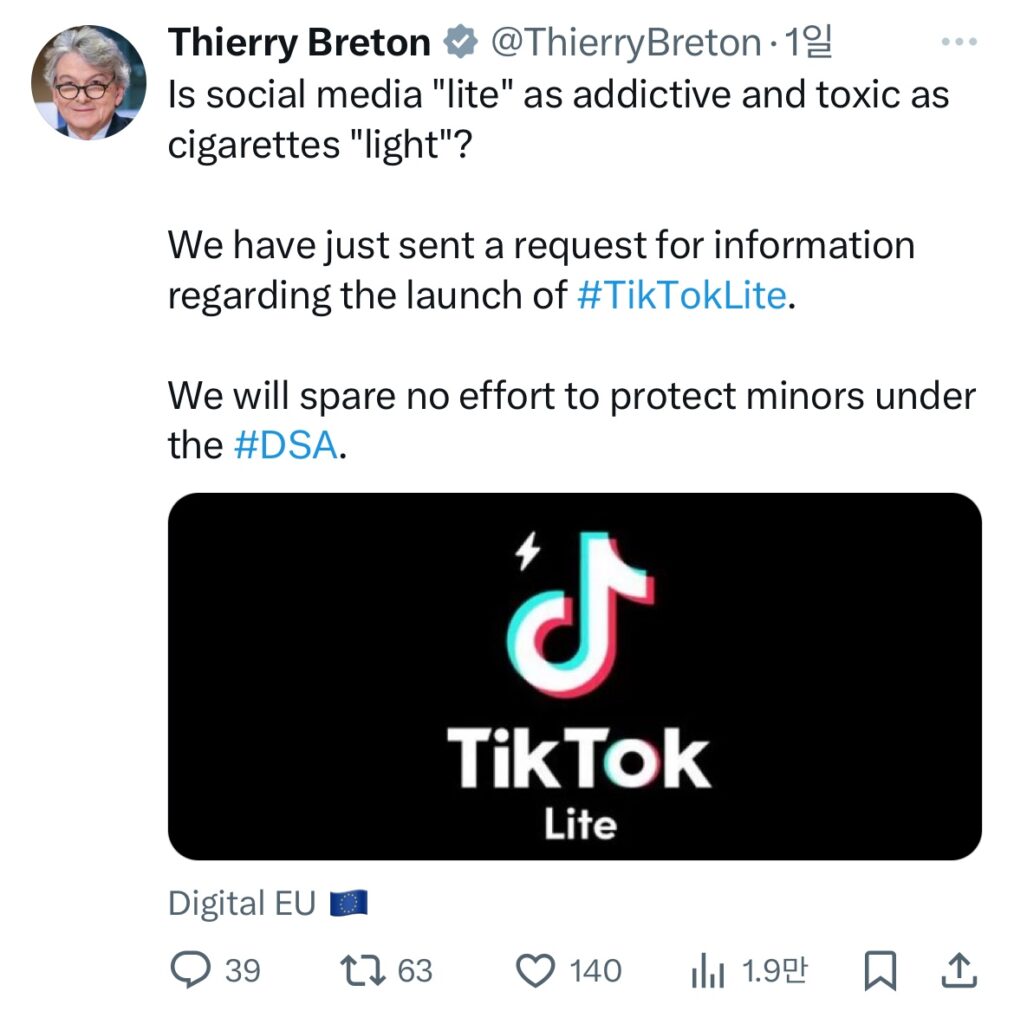
If the EU watches the video, it has expressed concern that “TikTok Light,” which gives 1 euro a day, could poison teenagers.
Foreign media reported that the European Union asked TikTok’s parent company ByteDance to submit the results of a risk assessment of the impact of “TikTok Light” on adolescents and the possibility of harming the health of users.
TikTok Lite is a service that offers rewards when you watch a video or display a “like” on it. Users can get rewards up to 1 euro per day. It started its service in Korea in October last year and was released in Spain and France in Europe.
It was targeted at users over the age of 18, but the EU was concerned that it could affect the mental health of adolescents and cause addiction.
“Users can be rewarded for videos suggested by the algorithm, not videos they searched,” said French daily Le Monde, who tested TikTok Lite. “The user has no choice.”
Dr. Hodge, an expert on gaming and digital addiction, also pointed out on the BBC that “the monetary reward is not great, but it can cause addiction.”
The EU’s move is interpreted as a result of the Digital Market Act (DMA), which took effect in March.
The Digital Market Act prevents platform companies from abusing their market power. The law requires platform companies to take more action to address illegal and harmful content and imposes fines equivalent to up to 6% of global annual sales for violations.

The European Commission has designated ByteDance as a platform operator subject to special regulations. In February, it also investigated whether ByteDance violated regulations on data protection, child protection, and the crackdown on harmful content.
“Is social media ‘light’ addictive and dangerous like tobacco ‘light’? We will do our best to protect youth under the Digital Market Act,” EU Commissioner for Domestic Market Affairs Thierry Breton told X.
ByteDance will provide a risk assessment of TikTok light’s potential impact on adolescents by the 26th.
Companies can think of it as a marketing method to increase the number of users using the application. The state is obligated to protect its people who will be harmed by this. The results of the EU’s request to TikTok could affect other countries.
JENNIFER KIM
US ASIA JOURNAL



